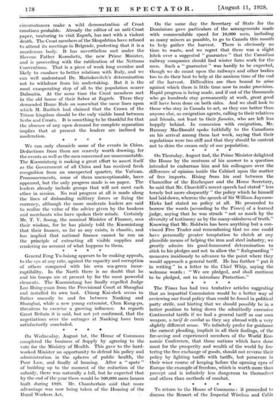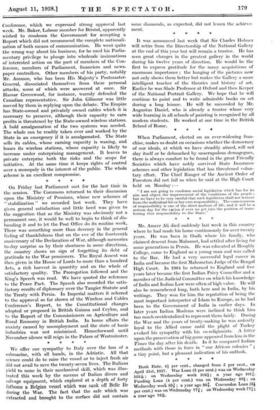Conference, which we expressed strong approval last week. Mr. Baker,
-Labour member for Bristol, apparently wished to Condemn the Government• for accepting a Report which did not recommend the complete nationali- zation of both means of communication. He went quite the wrong way about his business, for he used his Parlia- mentary privilege to plunge into wholesale insinuations of interested action on the part of members of the Con- ference, members of Parliament, financiers and news- paper controllers. Other members of his party, notably Mr. Ammon, who has been His Majesty's Postmaster- General, dissociated themselves from these personal attacks, some of which were answered at once. Sir Hamar Greenwood, for instance, warmly defended the Canadian representative. Sir John Gilmour was little moved by them in replying upon the debate. The Empire has State-owned and privately owned cables which it is necessary to preserve, although their capacity to earn profits is threatened by the State-owned wireless stations. A bold amalgamation of the two systems was needed. The whole can be readily taken over and worked by the State in an emergency if it is amalgamated. The State sells its cables, whose earning capacity is waning, and leases its wireless stations, whose capacity is likely to increase under enterprising management. It leaves to private enterprise both the risks and the scope for initiative. At the same time it keeps rights of control over a monopoly in the interest of the public. The whole scheme is an excellent compromise.
* *





























 Previous page
Previous page